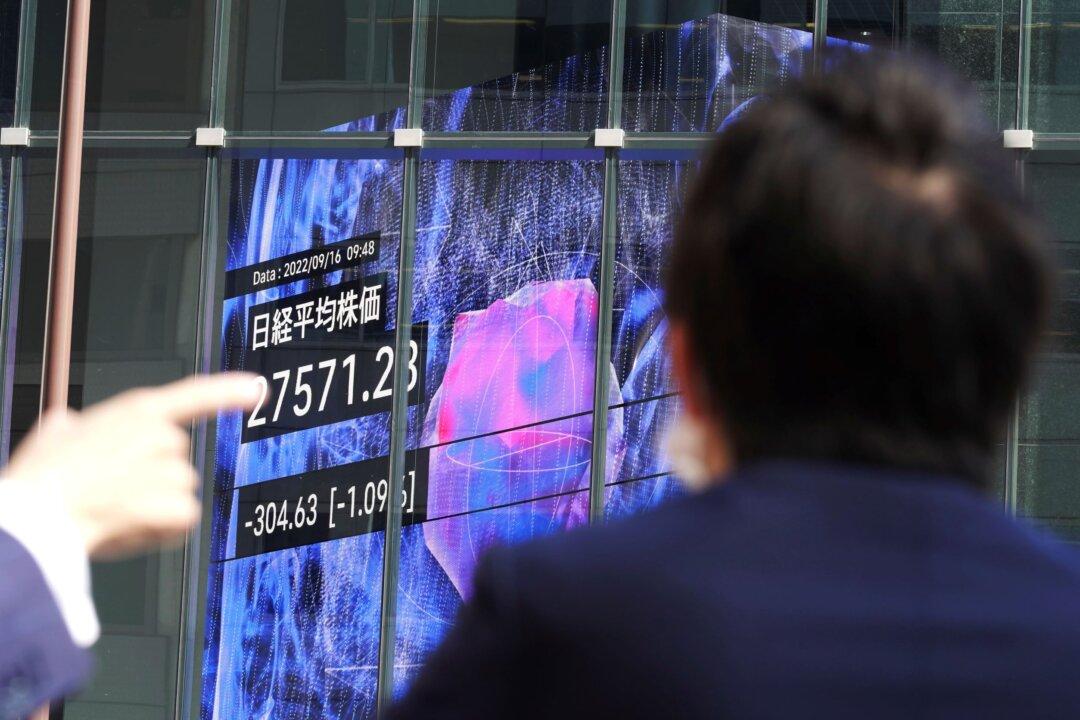BEIJING—Global stocks and Wall Street futures fell Friday after higher-than-expected U.S. inflation dashed hopes the Federal Reserve might back off plans for more interest rate hikes.
London and Frankfurt opened lower. Shanghai, Tokyo, and Hong Kong retreated. Oil prices declined.





